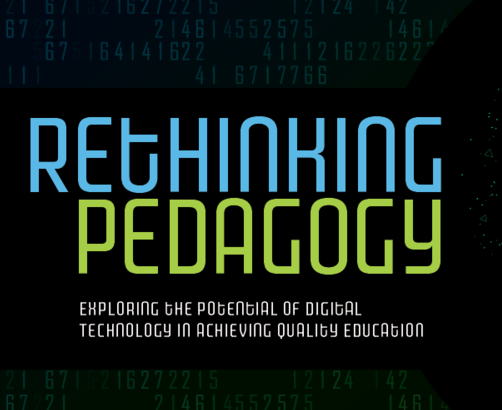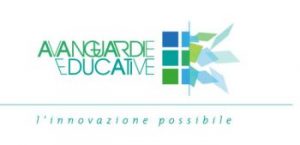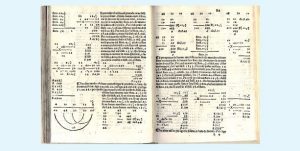indireinforma

“Depending on how they are designed and used, digital education media and resources may well promote or undermine opportunities for ‘learning to learn’ and ‘learning to think’, which serve as essential foundations of our capacity for innovation as well as our ethical discernment and sense of responsibility that are needed to harness machines to shape a peaceful and sustainable society”.
These words open the key messages section of “Rethinking Pedagogy. Exploring the Potential of Digital Technology in Achieving Quality Education” the report published this year by Mahatma Gandhi Institute of Education for Peace and Sustainable Development (MGIEP), the institute of UNESCO active in the Asiatic-pacific region operating in education to pace and sustainable development.
The publication, resulting from 15 months accurate work, addresses the issue of digital education from different perspectives, gathering together knowledge on educational technologies, the study of a series of educational good practices from all over the world, the mapping of existing text books and existing digital resources. The volume provides a rich and articulated picture of the state of the arts, based on the analysis of contexts also very different among themselves and emphasises not only what has already been realised by research and educational practices but also what have still to be done.
The publication is edited by Yoko Mochizuki, Head of Rethinking Policy Programme, UNESCO MGIEP and Éric Bruillard, Professor of Computer Science, Paris Descartes University, France and had the cooperation of many scholars from everywhere in the world.
Close to 300 references, including books, academic articles and research and policy reports, in the fields of textbooks and educational media, computer science, learning science, comparative media studies, distance education, educational technology, digital media and learning, gaming and learning, artificial intelligence, among others, were consulted for a critical review. The international expert group convened by UNESCO MGIEP sampled more than 80 digital education resources, including repositories of Open Education Resources (OER), Massive Open Online Course (MOOC) platforms and Learning Management Systems (LMS), which served as a basis for developing a typology of existing digital education media and resources. «It is hoped that this global review of digital textbooks and other digital education media and resources will help highlight the potential of digital technology in contributing to quality, inclusive, and equitable education» Anantha Duraiappah, director of MGIEP, writes in the forward.
 In the report also one of the ideas promoted by Educational Avant-garde
In the report also one of the ideas promoted by Educational Avant-garde
Among the educational initiatives emerged at world level, in the chapter Rethinking the Role of Digital Textbooks (p.54), the report MGIEP-UNESCO mentions the project CDD/Libri di testo (where CDD is for Contenuti Didattici Digitali: Didactic Digital Content). This is one of the innovative ideas promoted by Avanguardie Educative, assuming that published textbooks play the role of a hidden curriculum, contributing to a strong persistence of the lecture-centred model of schooling. The network involved teachers in a reflective process to help them not only master procedures and practical advice for other schools, but also develop a deep understanding of pedagogical issues behind the practice.
In the dedicated box the researcher Alessandra Anichini explains the practice of auto-production of books, an activity that some Italian schools are already experimenting and that foresees the participation of students in the making of the content of their books. This is a didactic activity aimed at overcoming the concept of studying as just memorisation of texts: creating digital contents implies the collaboration of all the class and a critical use of the different tools and resources in the analysis of various languages, and socialisation. In particular, from the teacher’s point of view the production of texts in the class can be a way to produce contents modulated on different learning needs, and also to motivate students to combat disinterest towards some subjects and modernise contents linking them to the territory.

To conclude, we point out that Indire contributed also to the drawing up of the chapter From Books and Textbooks to Digital Educational Media: Historical and Conceptual Landmarks especially regarding the history of history of text books. One of the historical imagines published in the report, the Book of Abacus, printed by Bernardino de Bindoni in Venice, is part of Indire’s historical archive.
Report MGIEP-UNESCO “Rethinking Pedagogy. Exploring the Potential of Digital Technology in Achieving Quality Education” >>

